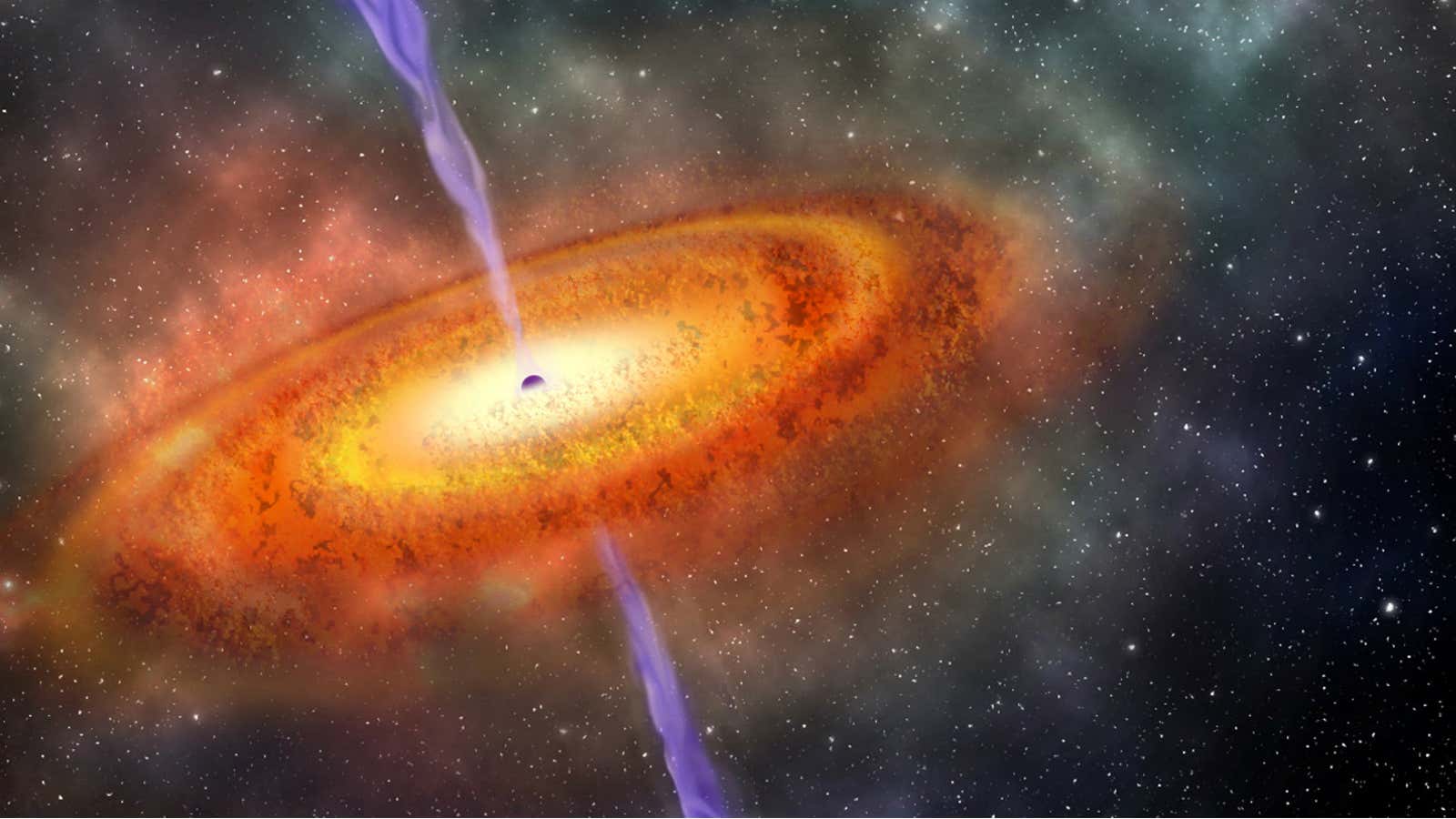In his long and spectacular career as the world’s most iconic physicist, Stephen Hawking wrote a lot about black holes. He discovered that they emit electromagnetic radiation (which later became known as Hawking Radiation) and proved theoretically that they could eventually disappear for good.
Then, in 2014, he shocked the scientific community by saying there actually were no black holes at all, or at least not in the way we’d been taught to think about them. Hawking, it seemed, had solved the “black hole information paradox.”
“Information” in physics refers to the specific states of each particle in the universe—things like their mass, position, and temperature. The laws of quantum physics say information can be transformed, but can’t be completely destroyed. We know black holes collect matter and energy, and based on Hawking’s early discovery that black holes can eventually disappear, the disappearing black hole would destroy the energy and matter collected over time.
In 2014, Hawking proposed that instead of having a boundary through which nothing can escape (known as the “event horizon”), black holes have an “apparent horizon,” which temporarily holds energy and matter before eventually releasing them in a different form. In other words, black holes transform all of the information they collect. Paradox solved.
However, an Indian scientist has been saying for years that he solved this paradox long before Hawking did. In a paper published in the journal, Foundations of Physics Letters, in 2000, Abhas Mitra, then a senior scientist at Mumbai’s Bhabha Atomic Research Centre (BARC), suggested that “exact” black holes as we thought of them could not exist as they would not follow the rules of Albert Einstein’s general theory of relativity. Instead, Mitra argued that all black holes would only be approximate or quasi black holes.
“In my 2000 paper, I pointed out the fact that experimental physicists had failed to find any evidence for Hawking Radiation, and I predicted neither will be there any such evidence in [the] future because there could not be any exact horizon, any exact black hole in the first place,” the 62-year-old told Quartz in an email. “Accordingly, I exerted that there is really no Black Hole Information Paradox.”
Mitra says he asked several big-name physicists at the time, including Hawking, to critique his work. But he never received a response. And his theory never really got the international science community’s attention.
By the time Hawking changed his stance, Mitra had spent several years studying and writing about black holes, cosmic gamma ray bursts, and more. He even went on to head BARC’s theoretical astrophysics department. And though his life’s work never brought him the kind of international renown that Hawking enjoyed, Mitra is also mourning the physicist’s recent death at the age of 76.
“Stephen Hawking has been a highly inspiring human being for all, including me, and his passing away is a great loss for physics,” he says.
